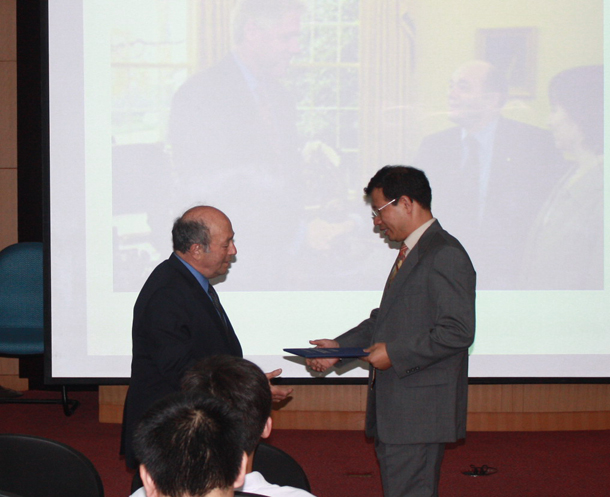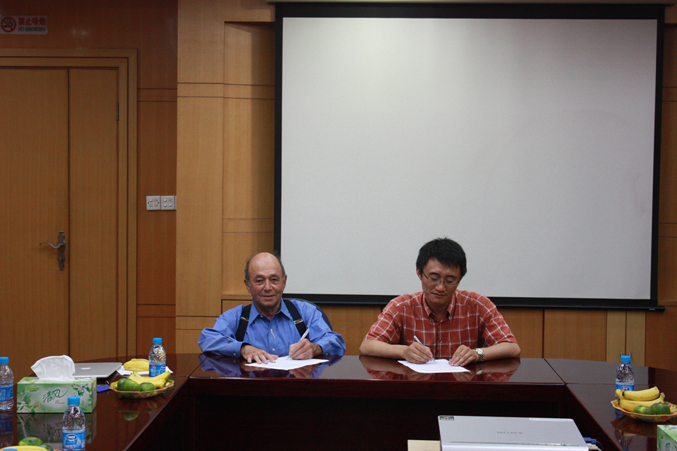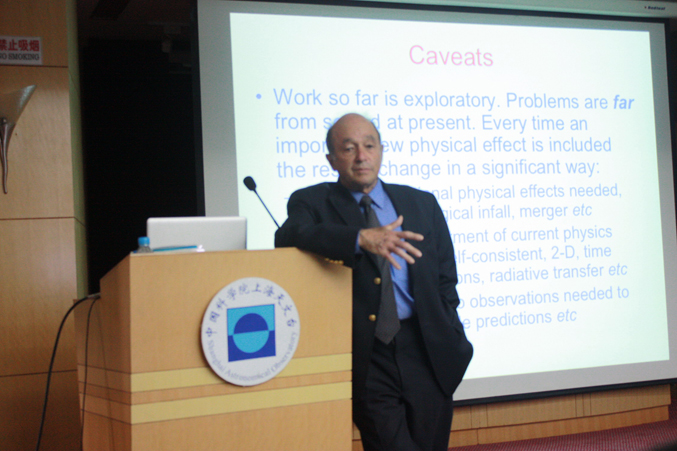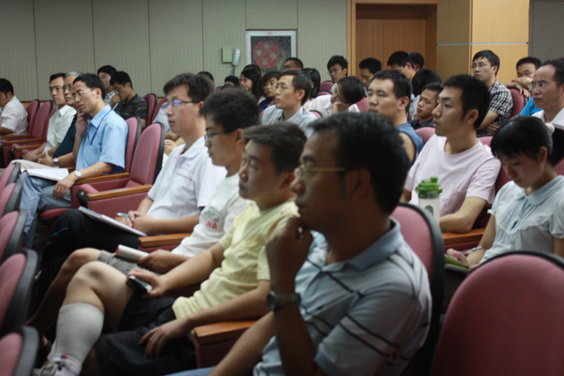|




Professor Jeremiah Ostriker from Princeton University visited Shanghai Astronomical Observatory from September 4th to 10th. He was awarded the Einstein Professorship of Chinese Academy of Sciences in the year 2009 and his visit was supported by this program. He gave a lecture entitled “AGN feedback --- the effects of massive black hole on their environment” on September 7th, 2009 in our institute.
Professor J. Ostrike is a world-wide famous astrophysicist, the provost of Princeton University. He has made many outstanding contributions in many areas of astrophysics, and has received numerous awards and honors around the world, including (American) National Medal of Science which is the highest awards in American scientific community, (American) National Science Foundation Awards, Academician of United States National Academy of Sciences and so on.
The lecture was chaired by the associate director of the Center for Galaxy and Cosmology, Professor Feng Yuan. About 40 faculties and students participated. They discussed with Prof. Ostriker after his lecture, asking many questions. Commissioned by the director of our institute and on behalf of the director of Chinese Academy of Sciences, Prof. Yipeng Jing, the chief scientist of the Center of Galaxy and Cosmology, awarded Professor Ostriker the certificate of “Einstein Professorship” before the lecture. Profs. Feng Yuan and J. Ostriker signed a collaborative agreement between our institute and Princeton University. As the Einstein professor of Chinese Academy of Sciences this year, Prof. Ostriker discussed sciences and future collaborations with faculties in our institute, gave many valuable advices to their research and the development of the Center. After his visit to our institute, he will move to Beijing, visiting National Astronomical Observatory of China and Peking University.
About the“Einstein Professorship” Program:
The Einstein Professorship Program is a new program to further train talented senior scientists since the “knowledge innovation” of CAS. Every year, CAS awards such professorship to 10 to 20 top scientists in the world. They should have obtained the major international scientific awards such as Nobel, Wolf, and Turing, or have the potential to obtain these awards, and still be active in their respective disciplines. By inviting these “Einstein Professor” to visit China and by sending some chief scientists of CAS to the host institutes of these “Einstein Professors”, CAS hopes to strengthen the connection and communication between scientists of CAS and top scientist in the world, to introduce front-line scientific concepts and ideas, to help training the chief scientists of CAS, and to raise the innovation ability of Chinese scientists.
|